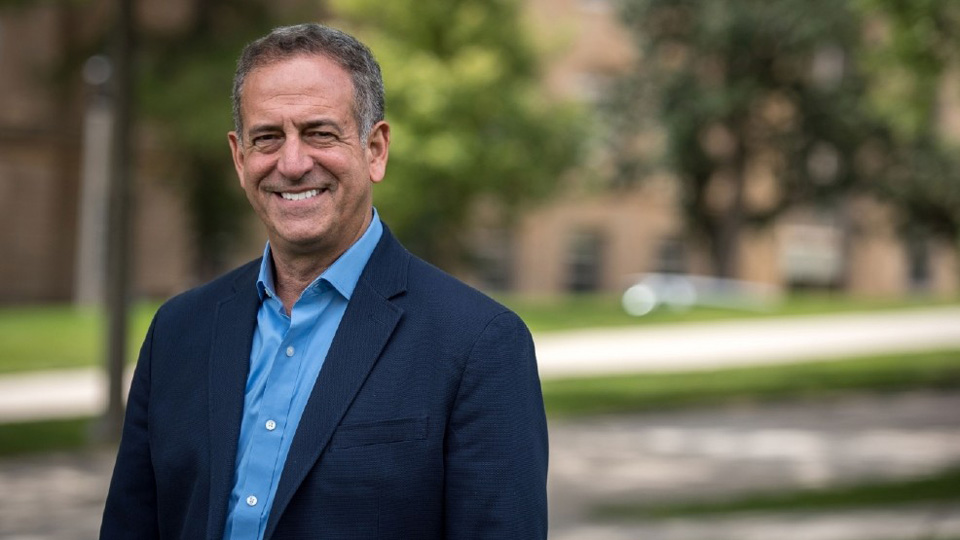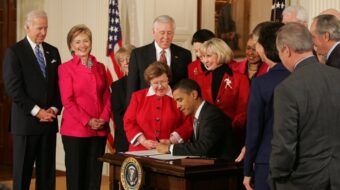
MILWAUKEE, Wis. – To understand the almost evangelical fervor behind Democrat Russ Feingold’s consistent lead in the polls over sitting Republican U.S. Sen.Ron Johnson, you have to go back to 2010. The same two opponents were lined up in Wisconsin but national observers were long in shock over the outcome. Feingold was leading in polls that May, but then fell 11 to nine points behind, surged up in October and still lost by 4 percent of the state vote.
Everyone knew that traditionally, in a new president’s first mid-term, the party out of power scores gains. But few were prepared for the size of the Republican wave that engulfed the nation two years after Preswident Obama’s victory, swamping not only the U.S. House but also many state houses. (But not, just then, the Senate.)
Only in late September, 2010, way tardy for such races, did Feingold enthusiasts wake up nationally: “My God, he actually could lose,” they warned each other. Wisconsin reporters covering the race were deluged with panicked long distance calls. Celebrities gave to the max – and had to return any excess – for the senator they had once touted as presidential material.
Fellow senators such as Maria Cantwell of Washington State rushed in. Notable fair trade leader Lori Wallach even took a leave from the nonprofit Public Citizen to work for Feingold. Unions and fair traders held rallies and meetings. Feingold concentrated his speeches on pocketbook issues.
It was actually working as Feingold closed the gap the more he talked trade issues — and the more the topic turned to what Wisconsin was doing to itself. If only he had another month!
But Johnson had not just caught a wave. He embodied it. Gushed syndicated conservative columnist George Will about Ron Johnson: “This 55-year-old manufacturer of plastic products from Oshkosh is what the Tea Party looks like. He is trim, gray-haired and suddenly gray-suited.”
Johnson pledged to spend his own money as he was led from anonymity into the GOP limelight — a backwards echo of “Mr. Smith Goes to Washington,” a gentleman farmer to clean up the pigsty.
This was the enduring right wing myth of the independent businessman – even one who married into the family business – being just what the nation needed. That myth is still around, isn’t it?
But Jimmy Stewart, Johnson was not. Over six largely useless years, he turned into the ultimate political insider, a label he regularly tries to wrap around Feingold. But it’s Johnson who toes the line on every GOP issue from Obamacare (which he tried in vain to sue) to climate change (where he earned a hearty False from PolitiFacts).
While proclaiming in ads he is the only manufacturer elected to Congress, he continues to dance around the Trans-Pacific Partnership (TPP), saying it is difficult to understand and he’s still thinking about it. TPP’s unpopularity in Wisconsin, of course, would have nothing to do with his caution, nor the fact that President Obama’s team wrote it.
Only of late has Johnson embraced the mantle of compassionate conservative, with ads about a church jobless program and a failed bill to help ALS drug experimentation. He has resisted the traditional judicial cooperation with fellow Wisconsin senator (now Democrat Tammy Baldwin). He has dodged responsibility yet pretended action on veterans issues. He even tried to claim the $10 million “reimbursed” by his family company was “deferred compensation” rather than a self-gift for the $9 million he spent to win in 2010. As a legislator he is notoriously inept, another George Will fantasy shattered.
Feingold is actually not the progressive’s progressive. The state that created the Wisconsin Idea had long been proud of its maverick, who holds listening sessions in all 72 counties – and actually listens. He became famous for his independence, pushing his progressive ideas while going his own way even on the liberal faction’s pets.
He angered the Senate leadership by voting for Bush’s first choice for attorney general (but not the second and onward as Bush poisoned his own garden). Yet he was one of the few votes against the Iraq war and the lone vote against the unrestricted Patriot Act. Today more senators wish they had voted as he did, including Hillary Clinton.
When he (with John McCain, today a deeply ambivalent and threatened Republican from Arizona) passed a famous campaign finance reform bill (pretty much undone by the Citizens United decision) he practiced what he preached in his 1998 re-election. He limited his campaign spending and refused outside money while his opponent garnered an extra $2 million from hidden donors. Feingold won only by 2 percent and even President Bill Clinton suggested if he had only played the game he would have won in a walk.
Win in a walk he did in 2004. In that year a young state senator from Illinois who had made a mark as Democratic convention keynoter broke off for a weekend his surging campaign for U.S. Senate – but only to come to Milwaukee to cheer for Feingold. Before a huge crowd with many members predicting they were watching a future president (few thinking how soon), Barack Obama was introduced by Representative- in-waiting Gwen Moore, with Feingold’s voice piped into Washington Park from D.C.
It was then Obama called Feingold “simply the most courageous person in the US Senate,” a model of conviction he intended to emulate.
Obama would soon come to know how courageous. A feisty Feingold supported Obamacare though he wanted it tougher and opposed the new president’s first consumer protection act because it wasn’t tough enough. Even today he is campaigning for a much different vision of global trade than Obama’s TPP. He and Sen. Elizabeth Warren, who also pushed for a stronger consumer protection act but supported the compromise that Feingold didn’t, today are clearly allied. In this campaign he’s turned the usually boring issue of rural Internet broadband into a human crusade for children’s equal access in education and a leveler playing field for small business.
During his six years in election exile, teaching at universities or working as special envoy to Africa for the State Department, Feingold had been pushed to run again and again — for the other senate seat, for governor, for the cabinet, all his for the taking. He refused. With typical fidelity to a cause, and more than a little bit of anger, he only wanted back the Senate seat that had been his for 18 years.
No supporter, in the state or outside, has been caught napping for this Nov. 8 finale. There’s a warmth to the surge, which partly may be Wisconsin’s way of saying I’m sorry – a repentance for losing that punch of honesty he added to the Senate.












Comments